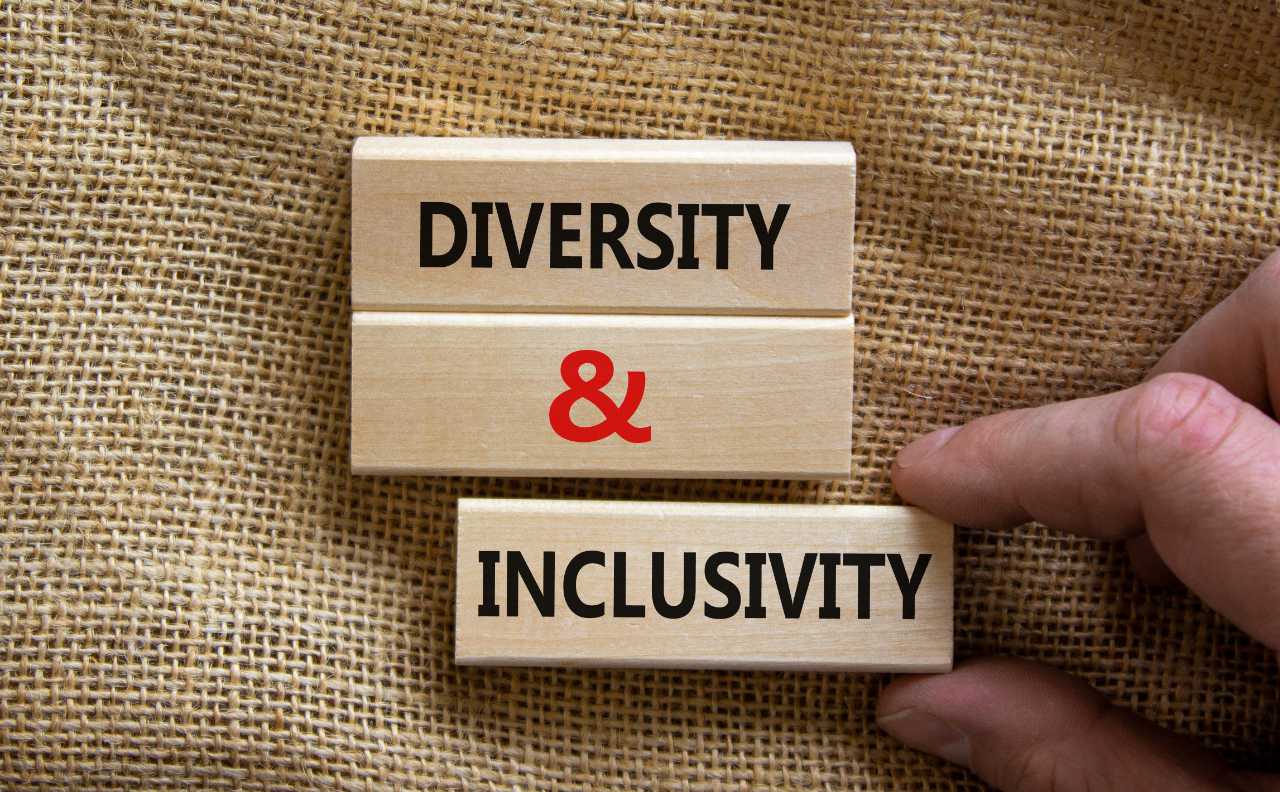
Organisations have increased their efforts when it comes to inclusive hiring and improving company culture, such as by using blind resumés and offering internships to employees from a diverse range of backgrounds.
When recruiting staff, employers are responsible for considering all job applicants equally, without prejudice or bias influencing decision-making. The McGregor-Smith Review discovered that the employment rate for Black, Asian and Other Ethnic Minority individuals was far lower (at 62.8%) than the employment rate for white workers (76.5%). A study by Workday found that only 35% of leadership teams within organisations believe ED&I (equity, diversity, and inclusion) to be vitally important. Over a third (36%) don’t have an ED&I strategy.
Research by the CIPD found that while improvements have been made in building more inclusive workplaces throughout the UK, there is still room for improvement.
Promoting equality and diversity in the workplace can significantly benefit organisations, employees, customers, and stakeholders.
What is equality and diversity in the workplace?
Equality in the workplace refers to the equal job opportunities and career development available to all existing employees and job applicants. This means that no individual should be prevented from filling a suitable role or progressing their career for protected characteristics, such as race, age or gender. Discrimination against an individual based on nine protected characteristics is against the law as defined by the Equality Act 2010.
Diversity in the workplace encompasses the variety and diversity of employees’ backgrounds, such as schooling, community, beliefs, lifestyle and other characteristics. Diversity in the workplace means organisations that employ people from a wide pool of differing backgrounds, characteristics, demographics, and behaviours to ensure a wide range of views, experiences, and perspectives.
5 benefits of equality and diversity in the workplace
Other than meeting compliance regulations and the Equality Act 2010, organisations can benefit from a diverse, equal and inclusive workforce in other ways.
Greater variety of workforce skills and experience
Teams comprised of individuals from different backgrounds may benefit from a wider variety of viewpoints, experiences and skills. This diversity of skills and experience can lead to an increase in organisational performance and output, with diverse teams making better business decisions 87% of the time. For example, an older team member may have already experienced a specific issue they are being tasked with addressing and fixing, allowing them to draw on previous experience to solve the problem.
Having diverse teams with broader skillsets could mean that they are more likely to be more effective when approaching new tasks and projects, boosting productivity, effectiveness and reducing waste and inefficiencies.
Develop new markets
By promoting diversity and equality in the workplace, organisations can open themselves to new market possibilities.
As the economy becomes increasingly globalised, it’s essential to reflect this in workforce diversity, where those of different geographical, cultural and social backgrounds can offer new insight and open doors.
Diverse teams will also have the core skills you need to assess and enter new markets. Teams with relevant cultural backgrounds and experiences can be helpful in helping organisations understand markets, establish contacts, understand cultural norms and provide greater insight into customer needs. From in-house language skills to experience working with different demographic groupings can save organisations money on buying external expertise or making commercial mistakes.
Brand reputation
With the spotlight on how organisations are highlighting diversity and equality, such as with organisations now publicly disclosing gender pay gap data, there is a drive from industry professionals and job seekers for more inclusive workplaces.
If you’ve had proven success with diversity hiring in the past, with diverse individuals in senior roles, this can have a visual impact on how other industry professionals and job seekers view you. Employment platforms such as LinkedIn and Glassdoor provide a great way to encourage your workforce to share their diverse values and benefits of your organisation.
Increased innovation
According to BCG, organisations with above-average management team diversity saw innovation revenue be 19% higher at 45% than those with below-average diversity (26%). With a team comprised of individuals with different backgrounds and skillsets, there is a greater opportunity for collaboration and creativity.
Wider talent pools
According to a Glassdoor survey, 76% of respondents said that an inclusive workplace is a key factor when it comes to evaluating job offers and organisations. Not only does better diversity and equality help attract a wide range of employees, but it also helps retain them as they feel that they’re working for an organisation whose values match their own.





